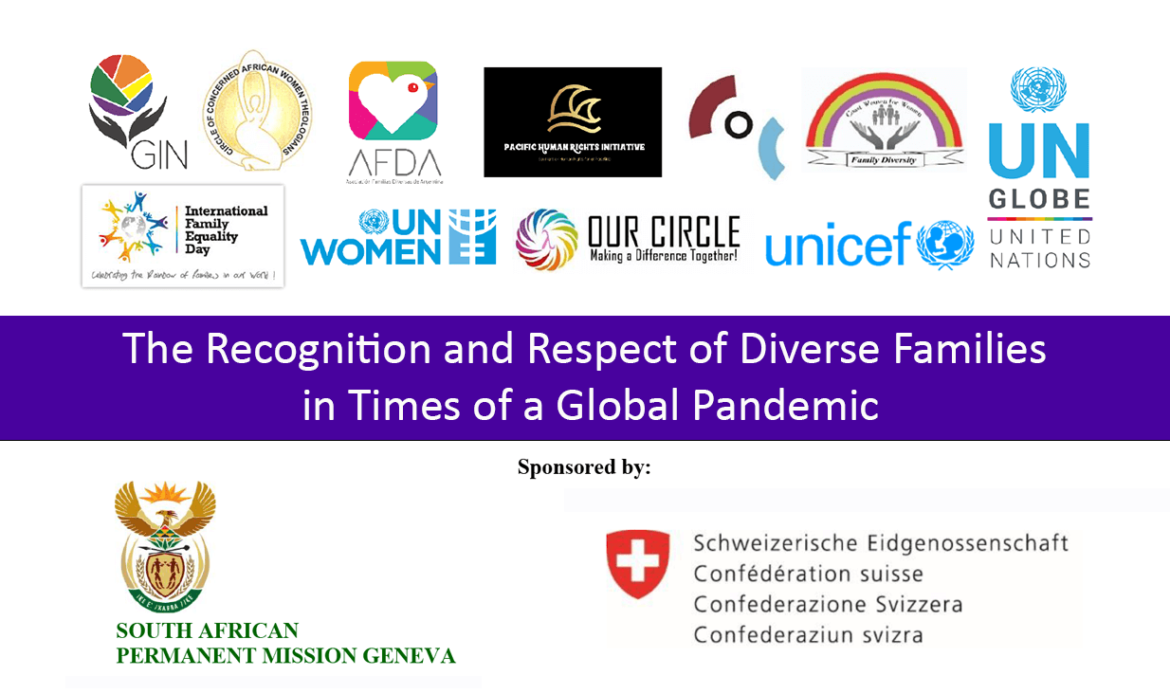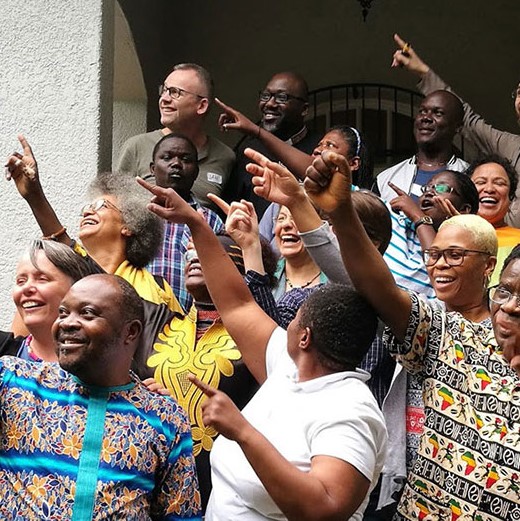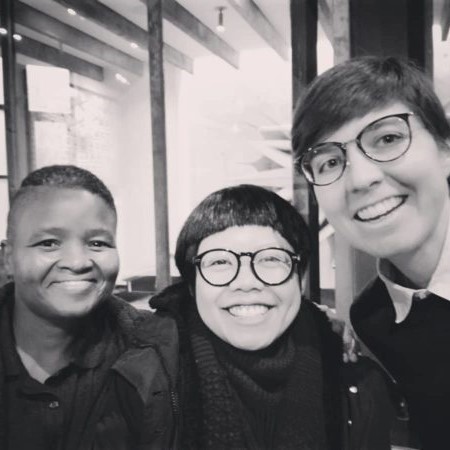GIN co-hosted a side event on Recognition and Respect for Family Diversity in Times of Global Pandemic
The international human rights system has for a very long time made strong efforts to protect the family, its individual members, and in all its diversity across history, regions, religions, and cultural traditions. On 3 July 2015, the UN Human Rights Council (HRC) adopted a Resolution on the Protection of the Family. This resolution followed on from a voted resolution adopted at the Council in June 2014 entitled “Protection of the family” which called for the holding of a panel on the subject in September 2014. Since 2015, there have been 3 resolutions passed each time with a different focus (including elderly people, and children). Last year, no resolution was passed. We expected a resolution to pass this year but no resolution was adopted linked to this topic. While there has been contestation around this resolution and efforts to include exclusionary language, we see this resolution, and all UN policies in this regard, as having the potential to continue to protect strong and stable families and family relationships, in all their diverse forms, since they continue to play an important role in our society.
GIN has done extensive research on the concepts of family and traditional values around the world. Today there is still a problem in recognizing these families. The non-recognition of their existence is another form of non-recognition of the particular problems they may face.
Among its three programmes, GIN has organized a series of regional seminars on the theme “Family and Traditional Values”, bringing together activists, academics, theologians, religious leaders, and human rights defenders in several countries of the Global South to develop counter-narratives to the messages of religious actors opposed to human rights that are located in different regions and contexts.
Furthermore, this year specifically, the health crisis related to the worldwide spread of the COVID-19 has affected all of us, and cast into sharp relief the added vulnerability of marginalized populations, including both individuals and families. Reduced employment, childcare, access to healthcare, food insecurity, and the impact of border closures and physical lockdown on families who find themselves separated have all affected especially on vulnerable communities and families.
As a response and as part of this work, GIN in collaboration with International Family Equality Day (IFED) and co-sponsored by the Permanent Missions of South Africa and the Swiss Confederation to the United Nations Office at Geneva held a side event during the 44th session of the UN Human Rights Council on the “Recognition and Respect for Family Diversity in Times of Global Pandemic”.
This side event aimed at providing information and discussion about the varied realities of family life worldwide as well as the impacts of COVID-19 in various contexts so that they are heard and integrated within the UN system which seeks to protect and respect the lives of all human beings. It highlighted the inequality which has been cast into sharp relief by the crisis and notes the consequences of marginalization of diverse families.
Speakers from around the world spoke about the situation in their respective countries and on behalf of their organizations. Participants included Andrea Rivas (IFED/AFDA, Argentina), Anita Bhatia (UN Women), Benny Odongo (IFED/Coast Women for Women, Kenya), Derricia Castillo-Salazar (IFED/Our Circle, Belize), Dominic Richardson (UNICEF), Gurchaten Sandhu (IFED/UN-GLOBE, UK), Dr. Nontando Hadebe (GIN, Southern Africa), and Tuisina Ymania Brown (GIN/ILGA World, Samoa/Australia). We were also lucky to have several interventions including from Victor Madrigal Borlow, UN SOGI Expert.
Through their statements, the speakers pointed out struggles during this health crisis that face those who are already stigmatized. Specifically, children living in abusive families, single-parent families, and families of same-sex parents and all other non-traditional forms of families. It is important to find specific and adequate solutions for these families that do not fit into the structure of traditional heterosexual families.
There is great potential to protect and promote the human rights of all family members in different family contexts across regions. The UN system, including states, have a responsibility to respect the human rights of all family members without distinction of any kind and this is of particular importance in times of crisis, when inequalities are highlighted. States should recognize that the family unit assumes a variety of forms in different societies around the world and make provision for addressing these families in their emergency responses. Moreover, States should recognize the various family units are comprised of diverse individuals, each of whom has a distinct set of needs that must be met to support physical, mental, and emotional well-being and personal growth.
This side event opened the debate on the diversity of families, a fundamental pillar of societies. This debate is not new and yet we are still faced with the rejection of the recognition of family diversity. As GIN, together with our partners, we continue to advocate for a world where the diversity of families is recognized.
You can watch the video here, on our Youtube channel.
[download id=”7809″]





